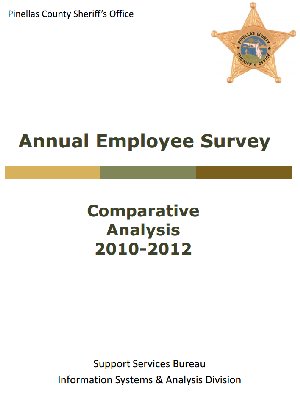- Not as well as we might think.
(Click for AUDIO VERSION)
To use this segment in a Radio broadcast or Podcast, send TIM a request.
 Today we have got some very bright and ambitious young people joining the work force but they are coming at a very different time in the business world. Thanks to technology, we now live and work in a much faster paced society than what I joined just three short decades ago. It is also a much more competitive environment due to changing economic conditions. True, the Greatest Generation has basically moved along, but the Baby Boomers are still firmly in place and are not inclined to retire any time soon. This means the class of 2012 will be competing not only with people in their 20's, 30's and 40's, but also with people in their 50's and 60's who cannot afford to retire.
Today we have got some very bright and ambitious young people joining the work force but they are coming at a very different time in the business world. Thanks to technology, we now live and work in a much faster paced society than what I joined just three short decades ago. It is also a much more competitive environment due to changing economic conditions. True, the Greatest Generation has basically moved along, but the Baby Boomers are still firmly in place and are not inclined to retire any time soon. This means the class of 2012 will be competing not only with people in their 20's, 30's and 40's, but also with people in their 50's and 60's who cannot afford to retire.
This got me thinking about how well we are preparing the next generation of workers. Are we really training them to succeed or are we setting them up to fail? Sure, they might be well educated in their professional area of expertise, but I am finding a remarkable number who lack basic street smarts. Somewhere between the safety of home and school, and the bitter realities of the real world, a void exists in preparing our youth for adulthood. In a way its like being a parachutist for the first time, except you are being pushed out the door with no instruction on what to do. This can be very traumatizing to young people who tend to be overwhelmed by the responsibilities of adult life.
In school, students were only concerned with attending class, absorbing the material, eating and their social life. However, in adulthood they suddenly have to face such things as insurance, taxes, housing, transportation, banking, investments, retirement accounts, health care, nutrition, paying bills, corporate cultures, etiquette, dress, career development, business ethics, office politics, networking, employment, management, etc. Oh yea, and Work. They may have been adequately trained for their profession, but nobody is preparing them to make the transition into adulthood.
The parents haven't prepared them. If anything, they have sheltered their youth from reality for far too long. For example, many kids today have not had to mow a lawn, clean a dish, push a broom, or hold a part-time job. Instead, they were free to concentrate on their homework and video games. In other words, parents have failed to instill the concept of simple responsibility and the value of a dollar. A lot of parents today are "hands-off" meaning they are content to let others raise their children for them, be it a relative, a nanny, a coach, or a teacher, thereby providing them with some free time to rest and relax.
The teachers haven't prepared them either, but in their defense this shouldn't be in their job description. Instead, they should be concerned with teaching academic subjects, such as math, literature, languages, science, etc. However, since a lot of mom and dads have dropped the ball, teachers have been forced to become surrogate parents, something they are not necessarily trained in or suited for.
Ultimately, this means today's corporate managers are inheriting a generation of naive young people with unbridled enthusiasm who are having difficulty adapting to the corporate world. Many of this generation seem to believe they are uniquely different, that the old established rules of today's corporate culture no longer applies to them; that corporations must adapt to them, not the other way around. Such naivety can be dangerous and lead to their demise as reality sets in.
To overcome this problem, perhaps we can help our youth by devising a new type of curriculum that would teach such things as:
* Personal Organization - e.g., managing finances, insurance, housing, transportation, etc.
* Adapting to the Corporate Culture - how to understand the culture and adapt to it. This would include discussions on business ethics, and studying change.
* Professional Development - teaching concepts of craftsmanship, continuous improvement, and basic business skills.
* Social Skills - how to effectively communicate and socialize in an office environment.
* Do's and Don'ts in the Workplace - discussing the realities of employment, company policy manuals, and other legal issues.
* Management 101 - teaching basic management concepts and rules to help "newbies" fit into the corporate culture.
Actually, none of this is new. We have all had to learn it through the School of Hard Knocks. However, if the next generation is to ever have a chance in today's fast paced world, we have to jump-start this process for them. Otherwise they will have difficulty surviving. Basically, what is needed is just some simple parental advice.
Keep the Faith!
NOTE: A lot of this is explained in my book, "Morphing into the Real World - The Handbook for Entering the Work Force"
Note: All trademarks both marked and unmarked belong to their respective companies.
 Tim Bryce is a writer and the Managing Director of M&JB Investment Company (M&JB) of Palm Harbor, Florida and has over 30 years of experience in the management consulting field. He can be reached at timb001@phmainstreet.com
Tim Bryce is a writer and the Managing Director of M&JB Investment Company (M&JB) of Palm Harbor, Florida and has over 30 years of experience in the management consulting field. He can be reached at timb001@phmainstreet.com
For Tim's columns, see:
timbryce.com
Like the article? TELL A FRIEND.
Copyright © 2012 by Tim Bryce. All rights reserved.

 Tim Bryce is a writer and the Managing Director of M&JB Investment Company (M&JB) of Palm Harbor, Florida and has over 30 years of experience in the management consulting field. He can be reached at timb001@phmainstreet.com
Tim Bryce is a writer and the Managing Director of M&JB Investment Company (M&JB) of Palm Harbor, Florida and has over 30 years of experience in the management consulting field. He can be reached at timb001@phmainstreet.com


 I recently ran into an old friend who began his career as a paramedic and over time evolved into a manager of a city ambulance unit. We hadn't seen each other in a long time so we sat down at a local watering hole to catch up on our lives. I've always found the work of paramedics and firefighters fascinating. It is more than just tending to a fire or simple accident. Actually, they see some rather bizarre accidents which they have to address. So do doctors working in hospital emergency rooms. I have heard some rather strange stories that would curl your hair. Some are hillarious sexual situations, others are gruesome accidents caused by the lack of simple common sense.
I recently ran into an old friend who began his career as a paramedic and over time evolved into a manager of a city ambulance unit. We hadn't seen each other in a long time so we sat down at a local watering hole to catch up on our lives. I've always found the work of paramedics and firefighters fascinating. It is more than just tending to a fire or simple accident. Actually, they see some rather bizarre accidents which they have to address. So do doctors working in hospital emergency rooms. I have heard some rather strange stories that would curl your hair. Some are hillarious sexual situations, others are gruesome accidents caused by the lack of simple common sense.
 Whenever there is a controversial government program that could possibly be construed as politically charged, there is a tendency by the powers that be to either camouflage it from view or portray it as an innocuous issue, something having no direct impact on the public. Such is the case with the pretrial system as implemented by law enforcement departments throughout the country. The intent of the system is to reduce the jail population, thereby saving the taxpayer money without creating an adverse effect on the crime rate. The only problem is, it hasn't quite worked out that way.
Whenever there is a controversial government program that could possibly be construed as politically charged, there is a tendency by the powers that be to either camouflage it from view or portray it as an innocuous issue, something having no direct impact on the public. Such is the case with the pretrial system as implemented by law enforcement departments throughout the country. The intent of the system is to reduce the jail population, thereby saving the taxpayer money without creating an adverse effect on the crime rate. The only problem is, it hasn't quite worked out that way.
 Today we have got some very bright and ambitious young people joining the work force but they are coming at a very different time in the business world. Thanks to technology, we now live and work in a much faster paced society than what I joined just three short decades ago. It is also a much more competitive environment due to changing economic conditions. True, the Greatest Generation has basically moved along, but the Baby Boomers are still firmly in place and are not inclined to retire any time soon. This means the class of 2012 will be competing not only with people in their 20's, 30's and 40's, but also with people in their 50's and 60's who cannot afford to retire.
Today we have got some very bright and ambitious young people joining the work force but they are coming at a very different time in the business world. Thanks to technology, we now live and work in a much faster paced society than what I joined just three short decades ago. It is also a much more competitive environment due to changing economic conditions. True, the Greatest Generation has basically moved along, but the Baby Boomers are still firmly in place and are not inclined to retire any time soon. This means the class of 2012 will be competing not only with people in their 20's, 30's and 40's, but also with people in their 50's and 60's who cannot afford to retire.


 Writing a eulogy commemorating a family member or close friend can be a daunting task. I have written my fair share of them over the years and they are never easy. You have to look into your heart and try to put into words how you feel about the deceased in a way others can easily comprehend. Your choice of words must be very precise as you want to invoke the proper responses from your audience who is normally in mourning. Consequently, you write it more for the purposes of oratory as opposed to just text narrative. As for me, I do not like to dwell on doom and gloom, but to remember the brighter side of people. Such was the case recently when I wrote a eulogy for a good friend, Frank Verderame, who I met years ago through the Masons. He was an Italian from Brooklyn who retired to Clearwater back in the 90's. Frank may have been older than me, but we found a kinship that flourished over the years. Here is what I wrote:
Writing a eulogy commemorating a family member or close friend can be a daunting task. I have written my fair share of them over the years and they are never easy. You have to look into your heart and try to put into words how you feel about the deceased in a way others can easily comprehend. Your choice of words must be very precise as you want to invoke the proper responses from your audience who is normally in mourning. Consequently, you write it more for the purposes of oratory as opposed to just text narrative. As for me, I do not like to dwell on doom and gloom, but to remember the brighter side of people. Such was the case recently when I wrote a eulogy for a good friend, Frank Verderame, who I met years ago through the Masons. He was an Italian from Brooklyn who retired to Clearwater back in the 90's. Frank may have been older than me, but we found a kinship that flourished over the years. Here is what I wrote:

 As a systems man with over thirty years of experience, I always enjoy hearing embarrassing snafus costing millions of dollars. It is like reading a mystery thriller to discover "whodunit." In the systems field it is typically a matter of bad planning, bad designs, lack of documentation, and poor project management resulting in overruns and slipped schedules; it can also be caused when the system implementation (aka, "start-up") backfires. As to the latter, a doctor friend of mine recently told me about his experience with a new system at a local hospital. You may remember me briefly discussing this earlier,
As a systems man with over thirty years of experience, I always enjoy hearing embarrassing snafus costing millions of dollars. It is like reading a mystery thriller to discover "whodunit." In the systems field it is typically a matter of bad planning, bad designs, lack of documentation, and poor project management resulting in overruns and slipped schedules; it can also be caused when the system implementation (aka, "start-up") backfires. As to the latter, a doctor friend of mine recently told me about his experience with a new system at a local hospital. You may remember me briefly discussing this earlier,  Although vendors will generally work overtime to satisfy the wants and needs of a customer, sometimes it is more important to maintain one's dignity as opposed to allowing the customer to walk all over you. I have seen many situations in sales and customer service where the client relentlessly pushes for the lowest prices and/or maximum benefits, just to earn brownie points with his management. He is not so much concerned with doing business with a particular vendor as much as he wants to look good in the eyes of his boss.
Although vendors will generally work overtime to satisfy the wants and needs of a customer, sometimes it is more important to maintain one's dignity as opposed to allowing the customer to walk all over you. I have seen many situations in sales and customer service where the client relentlessly pushes for the lowest prices and/or maximum benefits, just to earn brownie points with his management. He is not so much concerned with doing business with a particular vendor as much as he wants to look good in the eyes of his boss.
